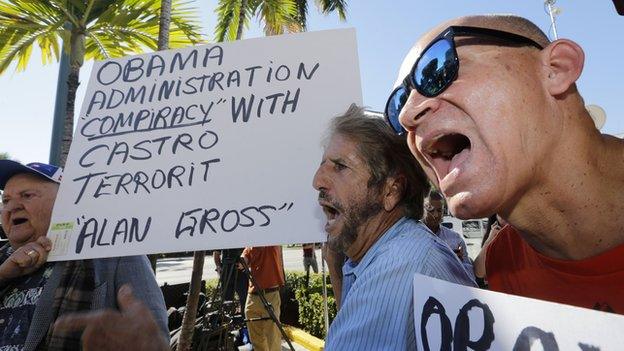Top US delegation to hold migration talks in Cuba
- Published
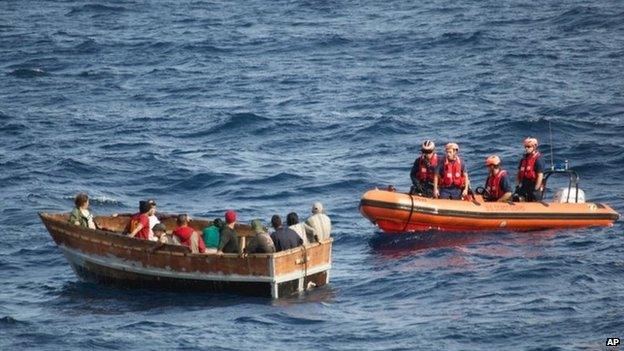
The US Coast Guard says the number of Cubans trying to enter the US has soared over the past month
US Assistant Secretary of State Roberta Jacobson will lead a delegation travelling to the Cuban capital, Havana, later this month.
These will be the first high level talks since Cuba and the US announced last month that they were restoring relations.
The US State Department said the talks - to take place on 21 and 22 January - would focus on migration.
The United States severed ties with Cuba's communist government in 1961.
Despite the lack of diplomatic relations, the two countries hold routine talks on migration every six months.
'Wet foot, dry foot'
The state department said that the next meeting would also seek to push forward the rapprochement process announced by US President Barack Obama and his Cuban counterpart Raul Castro on 17 December.
The agenda for the talks has not been announced, but it will include discussions on re-establishing diplomatic relations and the decision announced by Mr Obama and Mr Castro to reopen embassies in Washington and Havana, said state department spokeswoman Jen Psaki.
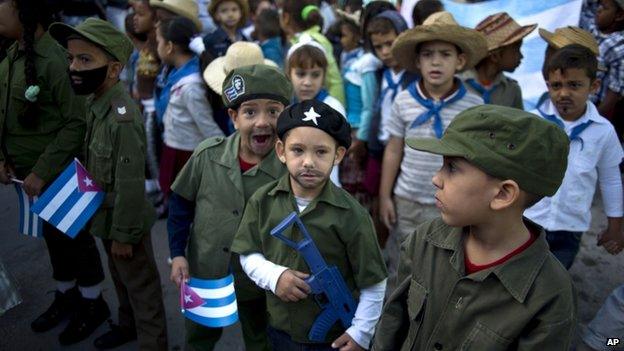
Children in Havana celebrated this week the 56th anniversary of the Cuban Revolution
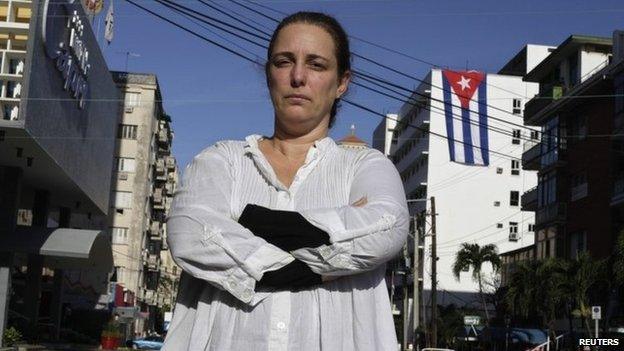
Cuban artist Tania Bruguera was detained last week hours before a planned open microphone protest
The US Coast Guard has reported a steep increase in the number of Cubans trying to cross the 90-mile (145km) wide Florida Straits since the 17 December announcement.
Nearly 500 migrants either managed to enter the US on makeshift boats or were stopped on their way to Cuba in December, an increase of more than 100% over the same month in 2013.
Many Cubans fear the US will cancel its current "wet foot, dry foot" policy, says the BBC's Carlos Chirinos in Miami.
The policy allows Cuban migrants who make it to US shores to stay while those intercepted at sea are repatriated.
'Deeply concerned'
President Obama's proposal to restore relations still needs to be approved by Congress, where it faces opposition from many Republicans and anti-Castro lawmakers.
The US says it will continue to push Mr Castro's government to respect human rights and the freedom of speech.
Last week, the Cuban authorities detained several high-profile dissidents who were planning to stage an open microphone protest in Havana's Revolution Square.
The US State Department issued a statement saying it was "deeply concerned" by the reports. The activists were eventually released.
This week, Cuba sent a positive sign to Washington when it released five political prisoners on a US list of 53.
"Obviously we would like to see this completed in the near future," Ms Psaki said.
Senator Marco Rubio, a leading critic of the president on the Cuba question, and other Cuban-Americans in Congress have argued that Mr Obama's change of policy could provide legitimacy and money for the Cuban government while it continues to violate human rights.
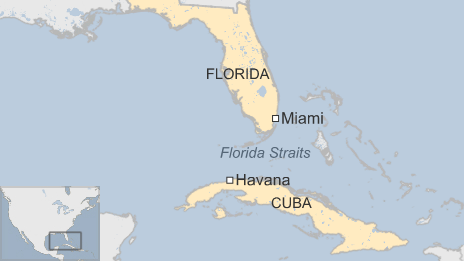
- Published1 January 2015
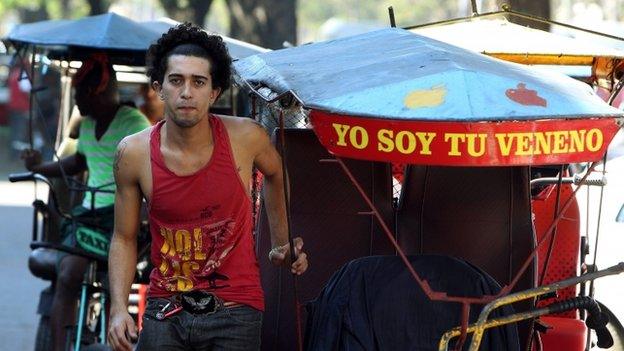
- Published18 December 2014
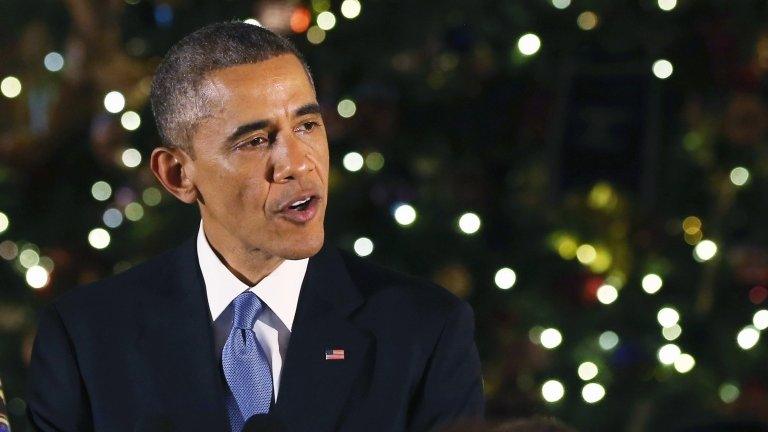
- Published23 December 2014
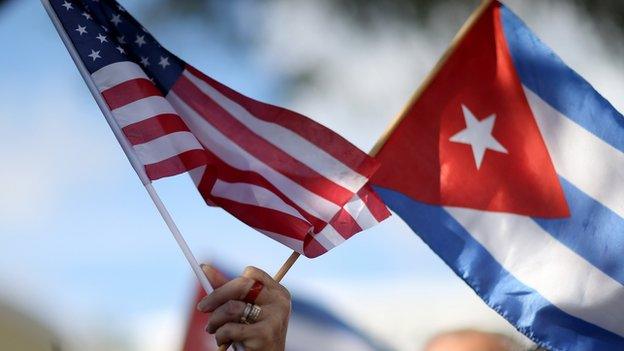
- Published18 December 2014
